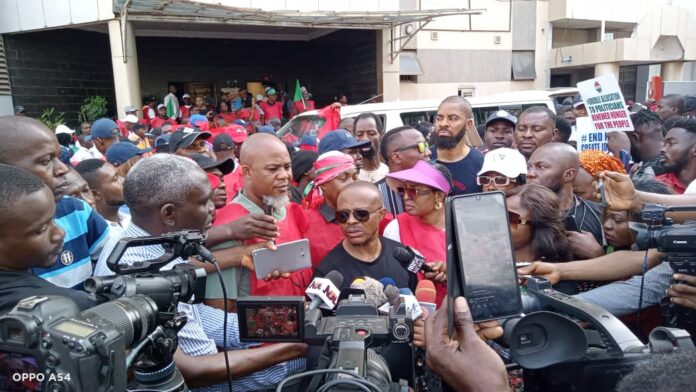The Federal Government has declared the Organized Labour’s demand for a ₦494,000 minimum wage as impractical, noting that several states have not yet implemented the existing ₦30,000 minimum wage. This statement was made by the Minister of Labour and Employment, Nkeiruka Onyejeocha, during an interview on Channels Television’s Politics Today on Monday.
Onyejeocha urged the Organized Labour to call off its ongoing industrial action, which has significantly disrupted economic activities nationwide. She highlighted that the determination of a new minimum wage involves state governments and the Organized Private Sector, not just the Federal Government.
“The Federal Government acknowledges that a tripartite committee must ensure that any agreed-upon wage is feasible for all parties involved,” Onyejeocha stated.
She emphasized that some states are still struggling to meet the ₦30,000 minimum wage agreed upon by the tripartite committee in 2019, making the ₦494,000 demand by the Nigeria Labour Congress (NLC) and the Trade Union Congress (TUC) unrealistic.
Reflecting on past agreements, Onyejeocha noted, “When the ₦18,000 minimum wage was agreed upon, certain states couldn’t pay. Now, with the ₦30,000 minimum wage, some states are still unable to meet this obligation.”
The minister described the ₦494,000 demand as “highly impossible,” expressing concerns that such a wage would lead to massive job losses as many businesses would struggle to afford the increased payments. She added that the economic impact of the strike over the past 24 hours has been substantial, affecting businesses, airports, universities, hospitals, and power supply.
Onyejeocha urged the labour unions to consider the government’s offer of ₦60,000 and return to the negotiation table to establish a realistic wage. She argued that the new minimum wage must align with the productivity and affordability levels of the private sector and must be sustainable for all members of the tripartite committee.
The minister also warned that the ₦494,000 demand could further escalate Nigeria’s inflation, which currently stands at 33.65%. She assured that the government is committed to establishing a new and realistic minimum wage, contrary to the labour unions’ claims of government insincerity.


